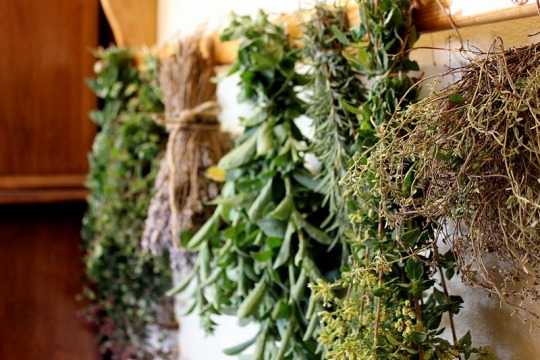
Herbs and oils are wonderful tools for all manner of things, from folk remedies and aromatherapy to root work and magic. When used correctly, they can have a positive effect on your health and emotional wellbeing. Used incorrectly, they can cause unpleasant reactions or even, in the case of plants like Atropa belladonna, sickness and death.
While the majority of herbs you will encounter in folk remedies or spellwork will be safe (in moderate quantities), there are some extra precautions to take when using essential oils. Essential oils are highly concentrated plant extracts; a little goes a long way, and it’s easier to go too far.
Let’s talk about Herbs
If you are collecting the herbs yourself, be sure to do your research. Know the area you are collecting in, be familiar with what grows locally, and know how to identify it. Know what is available for the current season, and when the best time to pick is. Know if any dangerous plants grow in your area, and be particularly versed in identifying them. Know, know, know!
It’s a good practice to carry a pocket field guide with you when you go out, either as a book or on your phone, to help you identify plants. This is particularly important if you are collecting plants to eat or brew teas.
Always try to collect from a healthy looking plant, in an area that is away from pollution such as roads or fouled streams.
Whether you buy your herbs, grow your herbs at home, or harvest in nature,be sure to know the plant’s scientific name. Label it with it. Knowing the scientific name allows you to identify the specific properties of your plant including dosage from resources like Botanical.com. It also helps to prevent confusion between plants with varying colloquial names (our earlier referencedAtrop Belladonna is also known by the names: Deadly Nightshade, Belladonna, Devil’s Cherries, Naughty Man’s Cherries, Divale, Black Cherry, Devil’s Herb, Great Morel, and Dwayberry)!
Always ensure your herbs are of good quality. They should be springy and vibrant if fresh; rinse them thoroughly to remove any dirt or pesticides, and pat dry before using. If dry, they should be no more than six months old, and stored in a well ventilated, covered location where they wont collect dust. If they show any signs of mould, discard immediately.
Now on to Oils
You should pretty much never ingest essential oils. Unless your doctor (NOT your friend who took a nutrition class in college and is a totally knowledgeable self-proclaimed naturopath who does it all the time) tells you it’s ok to do, it’s probably not worth the risk. Essential oils should only be used for aroma therapy and topical application. Don’t apply them to wounds or broken skin.
Be sure your essential oil is natural, especially if you will be putting it on the skin. There are a large number of cheaper, synthetic oils on the market. While they can be used for aromatherapy, they have a tendency to be more irritating.
ALWAYS dilute your essential oil in what’s called a carrier oil. This is an odourless or mildly scented oil such as almond, jojoba, coconut, safflower or grapeseed. If you can, choose an oil that you already use frequently so that it’s familiar to you and less likely to cause a reaction. Added bonus: you probably already have it on hand, or know where to get more.
I don’t like to use olive oil unless a remedy or spell specifically calls for olives because it smells so strongly.
Before using an essential oil mixture on the skin, you should do a patch test. This involves putting a dime or quarter-sized amount of the oil on the inside of your forearm, near the elbow. Let the product absorb into the skin and wait 24 hours to see if a reaction develops. If there’s no sign of irritation after that long, you’re clear to go!
If at any point during use you develop a reaction, immediately discontinue use. If it worsens or lingers, get to a doctor right away!
Medical Considerations for Herbal Remedies
Some herbs can interfere with certain medications, such as MAO inhibitors or chemotherapy. If you are taking any medications, check with your doctor or pharmacist to make sure there wont be any interactions.
Herbal remedies should not be used on the skin if you have recently undergone a medical skin treatment, including peels or dermabrasion. You should also use caution if you have any skin condition that causes cracking, flaking or peeling, including eczema or psoriasis.Talk to your dermatologist for advice before use.
If you are pregnant or breastfeeding, avoid using any kind of herbal treatment before first consulting with a doctor.
Stay safe, Witches!
- Smokie